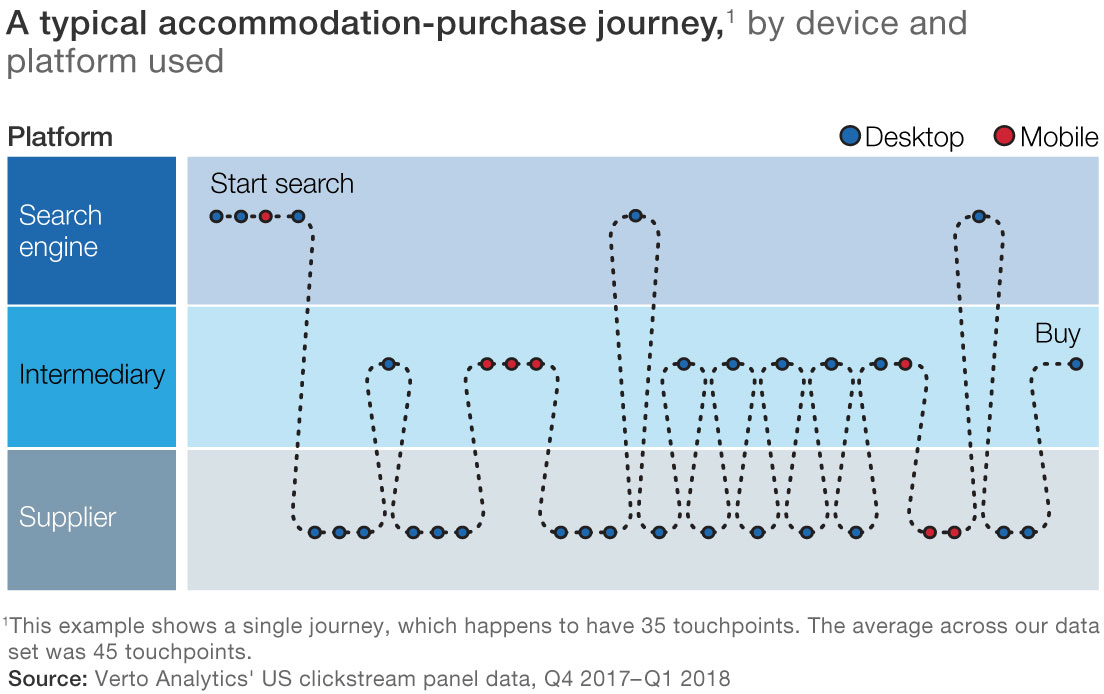| Plus, is the US ‘retail apocalypse’ fact or fiction? |
 |
January 18, 2019 |
|
 |
| Our best ideas, quick and curated |
|
|
|
|
| This week, we talk with two experts about jobs and education in an era of global technological disruption. Plus, sorting fact from fiction in the US “retail apocalypse,” and reading picks from Fernanda Hoefel, a retail expert in São Paulo. Subscribe to get the Shortlist in your inbox on Fridays. |
|
|
|
| Judging by McKinsey’s latest quarterly survey of executives, the short-term forecast for the global economy is … cloudy. Nearly half of respondents—46 percent, the largest group since our June 2012 survey—expect the global economy to worsen and its growth rate to decline for reasons including changes in trade policy and geopolitical instability. |
| What about longer-term trends? How tech disruption is affecting societies, economies, industries, and employment is a topic we’ve been exploring extensively, and it will be a big theme at Davos next week. This week, we highlight conversations with two experts about how the workplace and education systems should adapt. |
| First up: Jason Furman, former chairman of President Obama’s Council of Economic Advisers and professor at Harvard’s John F. Kennedy School of Government. In Furman’s view, although artificial intelligence (AI) is changing the workplace, robots are far from usurping everyone’s job. “Productivity growth is lower now than it used to be—which is to say, there are fewer machines taking humans’ jobs rather than more,” he says. “I don’t think we’re in some brand-new era of change.” |
| That said, Furman points out that in the United States, the labor market provides more flexibility than security. “If people had more security, they’d feel free to take on more risk,” he suggests, adding that some emerging ideas, like larger-scale wage subsidies, merit exploration. He also notes that despite AI-driven change, the United States spends just 0.2 percent of its GDP on labor-market training—the lowest of any advanced economy in the OECD. “That’s something that we just need to invest in more,” he says. |
| Speaking of training, we also spoke with Sal Khan, founder of Khan Academy, about how he sees automation and AI shifting the types of jobs that will be most in demand. For Khan, the structure of the workforce is fundamentally changing—and it’s time for universities to transition in response. |
| In the old days, Khan points out, education wasn’t pegged to a fixed number of classroom hours or credits, the way it tends to be now. “If the prince is having trouble with a concept, the tutors wouldn’t say, ‘Well, the curriculum says we have to move on.’ They say, ‘OK, let’s make sure you really understand that, because you’re going to be king one day.’” |
| The same should apply, Khan believes, as we look to the future of education. “The world we’re going into must be a mastery-based world, where students have to be able to have the agency to fill in those knowledge gaps as necessary,” he says. “If you don’t know it yet, it doesn’t mean you’re not smart; keep working on it, and you might know it eventually. This type of learning won’t stop when you’re 18 or 21. It’s going to be a continuous process.” |
|
|
| OFF THE CHARTS |
| Click away for the hotel of your dreams |
| Yes, the internet makes finding accommodations easier than it was in the dark ages, when you had to rely on a travel agent’s tastes. But in some ways, the web provides so much information that hotel shopping is a long and winding customer journey of touchpoints and devices. |
 |
|
|
| WHAT WE’RE READING | Fernanda Hoefel |
|
| Fernanda Hoefel, a partner in São Paulo, leads McKinsey’s consumer-insight work in Latin America, where she works with retail and consumer clients on commercial transformations. |
|
|
|
| Émile Zola’s Au Bonheur des Dames (The Ladies’ Delight) is fun for anyone, but especially someone interested in retail. The novel charts the personal dramas among the staff and chic visitors to a new department store in Paris, set almost 150 years ago as French consumer society was just beginning. Zola talks about concepts like increasing dwelling time in stores, visual merchandising, and service support—all things we think about today—but in the context of a classic romance! |
| In Religion for Atheists: A Non-believer’s Guide to the Uses of Religion, Alain de Botton analyzes how secularists can learn from different religions—their rituals, codes, and influencing tactics—to positively influence human behavior and well-being. |
| I also recommend an engaging book about how the mind works: Mindsight: The New Science of Personal Transformation by Daniel J. Siegel, MD. The author integrates psychotherapy and brain science to show how people can alter the architecture of their brains to create a more positive mental outlook. Through case studies, Siegel discusses “mindsight,” a kind of mindfulness focused on solving a particular problem, like anxiety or compulsive behavior. It’s fascinating to read how people have been able to overcome negative issues that have held them back their whole lives. |
|
|
|
| BACKTALK |
| Have feedback or ideas? We want to hear from you. |
|
|
|
|


| |